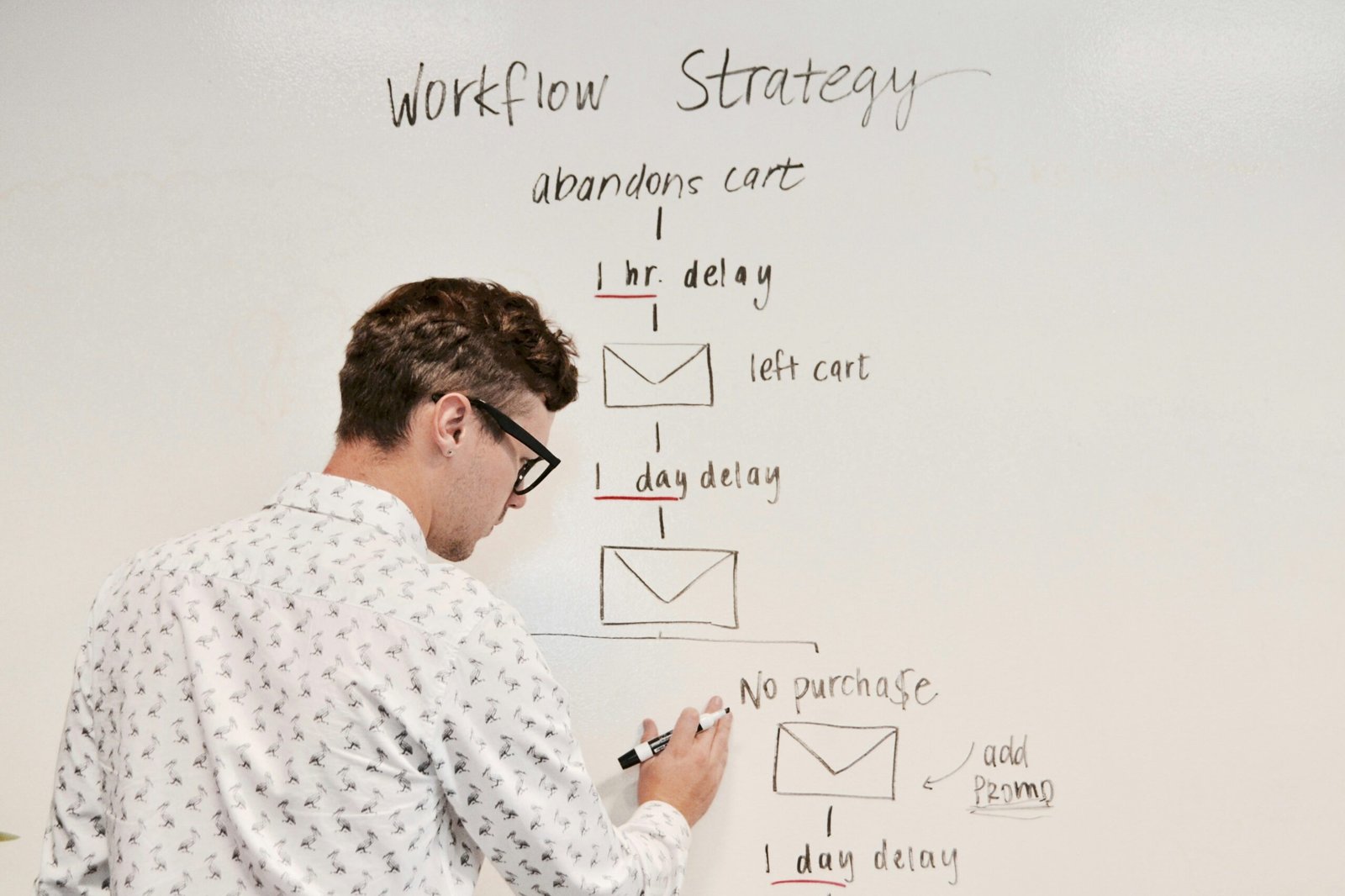Building Customer Loyalty in B2B E-Commerce: The Power of Regular Communication
Understanding Customer Loyalty in B2B Spaces
In the B2B e-commerce landscape, customer loyalty plays a pivotal role in shaping business success and sustainability. Unlike B2C environments where loyalty is often influenced by brand affinity and emotional connections, B2B loyalty is rooted in reliability and the quality of partnerships. The financial implications of repeat business in B2B sectors are profound, as established relationships often lead to consistent revenue streams, minimizing the costs associated with acquiring new clients.
One key distinction between B2B and B2C loyalty lies in the nature and duration of relationships. B2B transactions frequently involve long-term contracts and ongoing collaborations, requiring a deeper level of trust and commitment than typical consumer purchases. This trust is cultivated through effective communication, transparent dealings, and a demonstrated commitment to providing high-quality products or services. In this context, loyalty becomes synonymous with reliability; businesses that consistently meet or exceed customer expectations are more likely to maintain lasting partnerships.
Several factors significantly influence customer loyalty in B2B transactions. Trust is paramount; it fosters confidence in a vendor’s ability to deliver on promises and manage challenges effectively. Additionally, the quality of service provided—such as responsive customer support and seamless order fulfillment—directly impacts satisfaction levels. Companies that prioritize ongoing communication and remain attuned to their clients’ evolving needs are better positioned to nurture loyalty over time. This might include regular check-ins, informative updates, and personalized offers that resonate with partners. Such proactive efforts strengthen relationships and reinforce the value of choosing one supplier over another.
Ultimately, understanding customer loyalty in the B2B space is about recognizing the long-term importance of partnerships. By focusing on trust, service quality, and communication, businesses can enhance their relationships and drive sustainable growth in an increasingly competitive market.
The Role of Regular Email Communication
In the realm of B2B e-commerce, building customer loyalty is paramount. One of the most effective strategies for achieving this is through regular email communication. This approach not only keeps businesses connected with their clients but also serves as a powerful tool for fostering relationships. Various types of emails can be utilized to maintain consistent contact and cater to the needs of the customers.
Newsletters are a fundamental component of this communication strategy. By regularly sending out newsletters, businesses can share important updates, new product launches, and industry insights. This not only informs customers but also positions the company as a thought leader in their sector. Additionally, informative content can assist customers in making well-informed decisions, thereby enhancing their overall experience with the brand.
Another effective method is the use of personalized product recommendations. By analyzing previous purchases and browsing behavior, companies can tailor specific suggestions for each customer. This personalized approach not only makes customers feel valued but also increases the likelihood of repeat purchases. When clients receive emails that resonate with their needs, they are more likely to perceive the business as a trusted partner rather than just a vendor.
Furthermore, sending follow-up messages after transactions is crucial in reinforcing customer relationships. This could include a simple thank-you note or a request for feedback about their purchasing experience. Such communications express appreciation and demonstrate a commitment to continuous improvement. When customers feel acknowledged and heard, it significantly contributes to their loyalty.
In conclusion, regular email communication is a vital aspect of building customer loyalty in B2B e-commerce. By utilizing newsletters, personalized recommendations, and follow-up messages, companies not only keep their customers informed but also enhance their overall buying experience, fostering long-lasting partnerships.
Strategies for Effective Email Communication
Effective email communication is a cornerstone of building customer loyalty in B2B e-commerce. Implementing specific strategies can significantly enhance your outreach efforts while fostering stronger relationships with clients. One fundamental approach is segmenting your email lists. By categorizing your audience based on demographics, purchase history, or engagement levels, you can tailor your messages to resonate with specific groups. This will not only improve engagement rates but also show customers that you understand their unique needs.
Another key strategy is the use of automation tools. These tools can help B2B companies maintain consistent communication without overwhelming their teams. Email workflows can be designed to automatically follow up on inquiries, send reminders about upcoming events, or even deliver personalized offers. Automation ensures that your communication remains timely and relevant, which is essential for cultivating loyalty over time.
Incorporating customer feedback is equally important for enhancing email communication quality. By regularly soliciting feedback through surveys or direct inquiries, you can gather insights into what content resonates with your audience. This data can inform your strategy, allowing you to make adjustments that align better with customer preferences and expectations. Additionally, responding to customer feedback and demonstrating that their opinions matter will foster a sense of partnership with your audience.
Crafting compelling subject lines is crucial as they are the first impression your email makes. A well-written subject line can significantly boost open rates and ensure your message is noticed among a crowded inbox. Furthermore, the content within the emails should be engaging and relevant, utilizing visuals and clear calls to action to encourage interaction. Engaging content drives better response rates, making customers more likely to engage with your brand. These strategies collectively contribute to a more effective email communication approach, ultimately enhancing customer loyalty in the competitive B2B landscape.
Measuring the Impact of Communication on Loyalty
For B2B companies seeking to build customer loyalty through effective communication strategies, measuring the impact of such efforts is crucial. By utilizing key performance indicators (KPIs) and metrics, businesses can gain valuable insights into the effectiveness of their email communication initiatives. Identifying the right metrics is essential for determining how communication influences customer loyalty.
One of the primary metrics to consider is the email open rate, which reflects the percentage of recipients who open marketing emails. A high open rate indicates that the subject lines and insights are resonating with the audience, suggesting that the communication is engaging enough to capture interest. Following this, the click-through rate (CTR) provides additional insight by measuring the percentage of individuals who click on links within the emails. This metric is indicative of how well content converts engagement into actionable responses, an essential aspect of fostering loyalty.
Moreover, customer retention rates are crucial for assessing long-term loyalty. These rates represent the proportion of customers retained over a specified period and can be influenced by consistent and meaningful communication. Alongside retention, overall sales growth can serve as a broad metric reflecting the impact of communication strategies on customer loyalty. As positive communication fosters trust and reliability, it can lead to increased sales and deeper customer relationships.
To track these essential metrics, B2B companies can leverage various tools such as Customer Relationship Management (CRM) systems coupled with email marketing platforms. These tools allow for comprehensive data analysis, enabling businesses to refine their communication strategies effectively. By regularly analyzing performance data, companies can adjust their messaging, timings, and content to better meet customer needs, ultimately reinforcing loyalty and ensuring long-term customer engagement.







